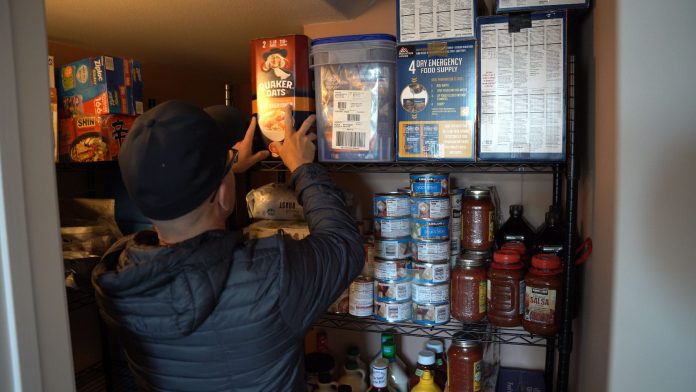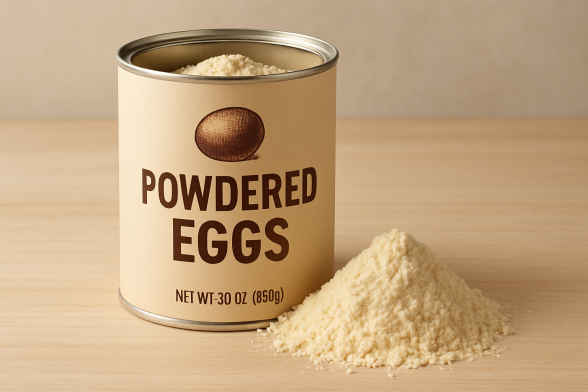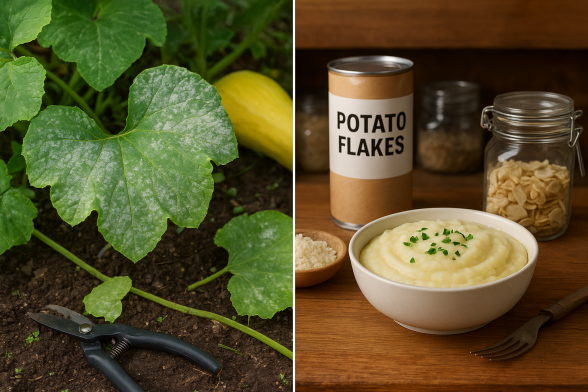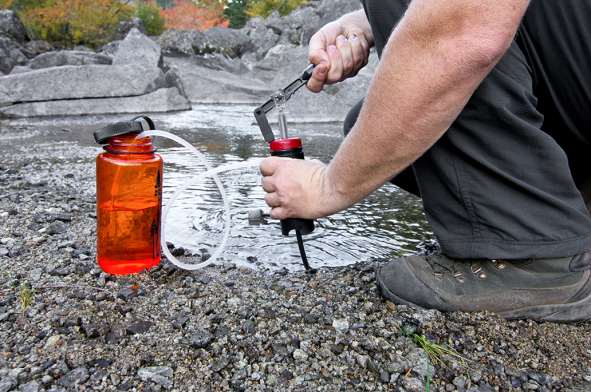Hi Everyone,
NOTES:

** So… I made yogurt.
Results: I mixed 3 c. milk with 1/4 c. yogurt with live cultures. I put it in three pint jars. The first one I put in the oven on “proof”. I thought that kept the oven at about 110˚. The second one I put in the dehydrator at 110˚ I checked them after about 4 hours. The ones in the dehydrator were perfect. The one in the oven was still too runny, so I took it out and put it in the dehydrator as well. Then….I totally forgot it was there and it sat in there all night. The next morning, I realized my mistake. But… it was just fine! I decided to use this as a test run for sour cream. I used a fine mesh strainer and added 2 layers of cheesecloth. I let the yogurt sit in the strainer for at least 6 hours. Here is the result:
This is about 1 c. milk and it made about 3 oz. cream cheese. I still have 2 c. yogurt in the fridge. I want to use it to try and get the same results from my powdered milk. Meanwhile, I’m making butternut squash soup tomorrow and intend to use my homemade cream cheese!
** Cast Iron Skillets:
GARDEN HAPPENINGS:
I took the shade cloth off the garden.
My beans are happy. I have lots of green peppers still growing.
It’s almost time to get in there and prune back the blackberries.
LONG TERM STORAGE: It’s our last week for milk. Get some!!! You should have 4 pounds of milk per person per month. No one wants to eat oatmeal with water.
SHORT TERM STORAGE: Tin foil, parchment, and plastic wrap.
In addition to the way you regularly use tin foil, here are some additional ideas:
Crumpled foil can be used to scrub stubborn stains or to clean garden shears.
Place foil behind radiators to reflect heat back into the room.
Hand strips of foil in your garden to scare away birds
Wrap saplings in foil to protect them from deer or rodents.
Foil is good for high heat grilling or wrapping juicy foods as they cook.
HOWEVER:
Unless there is a certain amount of “fat” involved, food will stick to aluminum foil, where it will NOT stick to parchment paper.
Don’t use foil if you are cooking with high acidic foods
72 HOUR KIT STORAGE – Buy an extra bottle of shampoo and conditioner and set them aside. If you often stay in hotels, you can just save all those little soaps, and shampoos and include those in your 72 hour kit.
FOOD STORAGE RECIPES:
These recipes come from The Prepper’s Cookbook by Tess Pennington.
If you have a dehydrator, you can make everything needed for these soups. Cut the veggies into small diced pieces, spread them on a tray and dry for 4-5 hours at 145˚.
If you don’t have a dehydrator, you can get something like this for only about $17:
All the vegetables are diced up and dehydrated. In the following recipes, the author uses the term “vegetable flakes” although not actual “flakes” more like nuggets.
Vegetable Soup Mix
1 c. dried vegetable flakes
1/2 c. dried tomato puree
3 TB onion flakes (although I think there are onions already in the above can)
1/2 c. pearl barley or lentils
1 tsp dried parsley
1/2 tsp onion powder
3 TB chicken or beef bouillon
salt and pepper
To make, bring 8 c. water to a boil in a 4 quart saucepan. Add 1 c. soup mix. Turn off the heater and cover the pan. Let it sit for 20 minutes or until the soup mixture is tender.
Creamy Potato Soup Mix
2 c. instant potato flakes
2 TB powdered butter
2 c. nonfat dry milk
2 TB chicken bouillon
2 tsp dehydrated minced green onion
1 tsp dried parsley
1/2 tsp dried thyme
1 1/4 tsp salt
bacon bits or dried ham bits (optional)
To make, bring 8 c. water to a boil in a 4 quart saucepan. Add 1 c. soup mix. Turn off the heater and cover the pan. Let it sit for 20 minutes or until the soup mixture is tender.
Chicken and Rice Soup
1/2 c. dried chicken pieces, stored separately from the soup mix
1 c. dehydrated cooked white or brown rice. (pretty sure you can use minute rice)
3 TB chicken bouillon
2 TB dried celery
2 TB dried onion flakes
1/4 c. dehydrated carrots
2 tsp dried garlic flakes
1/2 tsp dried thyme
1 tsp pepper
Rehydrated chicken in 3 c. hot water for 30 minutes before preparing soup. Then add 5 more cups of water and bring to a boil in a 4 quart saucepan. Add 1 c. soup mix. Turn off the heat, cover and let sit for 20 minutes. Then turn the heat to low and simmer for 30-35 minutes until the rice is tender.
Turkey Noodle Soup
1/2 c. dried turkey bits
1 c. uncooked egg noodles
3 TB chicken bouillon
1 TB dried onion
1 TB dried celery
1/2 TB dried carrots
1/2 tsp dried thyme
1/8 tsp celery salt
1/2 tsp garlic powder
1/2 tsp pepper
1 bay leaf
Rehydrate the turkey in 3 c. hot water for 30 minutes. Then add 5 more cups of water and bring to a boil in a 4 quart saucepan. Add 1 c. soup mix. Turn the heat to low and simmer, covered, for 30-35 minutes or until noodles and turkey are tender.
Marti Shelley









